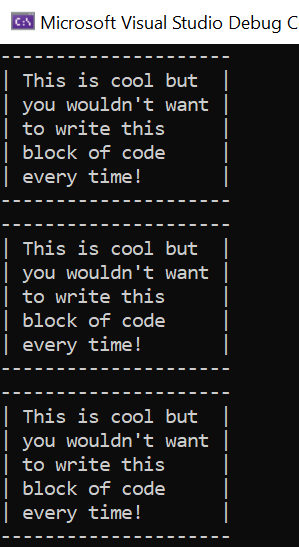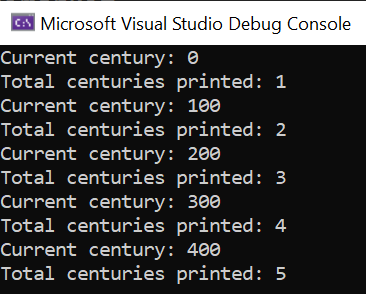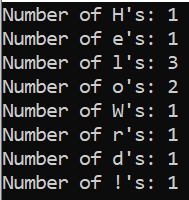You cannot select more than 25 topics
Topics must start with a letter or number, can include dashes ('-') and can be up to 35 characters long.
9.2 KiB
9.2 KiB
| marp | paginate | math | theme | title |
|---|---|---|---|---|
| true | true | mathjax | buutti | 6. Methods |
Methods
Overview
- Functions
- Methods
- Parameters
- Return values
- Scope of methods
What is a function?
- Functions are self-contained modules of code that accomplish a specific task
- Basically, a named block of code that can be executed as many times as we want
- Instead of writing the same code over and over again, do it only once as a function, and call it many times
void Example() { Console.WriteLine("Hello World"); } Example(); // calling the function three times Example(); Example();
Parameters and returns
- Functions can acquire data, a.k.a. parameters, from the caller
- Functions can return data, a.k.a. its return value, to the caller
- Defining parameters and return values are optional — not all functions have both, and some have neither!
- Here's a function that takes in one parameter and returns nothing (hence,
void)void PrintName(string param) { Console.WriteLine("My name is " + param); }
Function execution
When a function is called, the program leaves the current section of the code and begins to execute the first line of code inside the function.
- The program execution comes to the line of code where the function call is
- The program enters the function
- Instructions inside the function are executed from top to bottom
- Remember scopes: The variables defined inside the function are not visible outside the function!
- The program leaves the function and returns to the point where the function call was and continues the execution
- If the function returned any data, it can be used where the function was called
Methods vs functions
- In C#, most functions we see are methods: functions that are inside a class
- Even the main function is inside a class in C#, so it is a method
- Classes are explained in Lecture 7
- Here's the earlier function as a method inside the
Programclassclass Program { void PrintName(string param) { Console.WriteLine("My name is " + param); } }
Calling methods
- A method is executed only when it is called
- Some methods are already predefined, so we can call them right away
- For example,
Console.WriteLine()is a method that contains code that prints stuff in the console- Instead of writing ourselves all that complex stuff the method contains, we just use the short method call
Console.WriteLine()
- Instead of writing ourselves all that complex stuff the method contains, we just use the short method call
- The use of methods reduces repetitive code, adds modularity and makes designing your programs easier
Methods: An example
class Program
{
void PrintBlock()
{
Console.WriteLine("---------------------");
Console.WriteLine("| This is cool but |");
Console.WriteLine("| you wouldn't want |");
Console.WriteLine("| to write this |");
Console.WriteLine("| block of code |");
Console.WriteLine("| every time! |");
Console.WriteLine("---------------------");
}
static void Main(string[] args)
{
PrintBlock();
PrintBlock();
PrintBlock();
}
}
- In the previous example, we declared a new method called
PrintBlock - Then, the method was called three times
- Each time the entire code inside the method was executed
- Why didn't we have to use the class name the method belonged to, unlike with
Console.WriteLine?- Short answer: Because we called the method inside the class
- The
voidstatement means that the method does not return anything- More on that later!
Parameters
- Sometimes you want to pass data into the method when calling it
- This is done by adding parameters to the method declaration inside the parentheses:
void PrintSum(int val1, int val2) { int sum = val1 + val2; Console.WriteLine("Sum of " + val1 + " and " + val2 + " is " + sum); } - The values to be passed are set as arguments in the method call inside the parentheses:
PrintSum(2, 5); // Outputs "Sum of 2 and 5 is 7 PrintSum(5, 5); // Outputs "Sum of 5 and 5 is 10
Parameters: An example
static void Main(string[] args)
{
int centuriesPrinted = 0;
void PrintCentury(int century)
{
centuriesPrinted++;
Console.WriteLine
("Current century: " + century);
Console.WriteLine
("Total centuries printed: " + centuriesPrinted);
}
for (int i = 0; i < 500; i += 100)
{
PrintCentury(i);
}
}
Optional parameters
- You can give a parameter a default value by assigning it in the method declaration
- This makes the parameter optional
double CircleArea(double radius = 0) { double area = Math.PI * radius * radius; return area; } Console.WriteLine(CircleArea()); // This outputs 0 Console.WriteLine(CircleArea(2)); // This outputs 12,56637...
Exercise 1
- Write two methods
SumandDifferencethat both take in two parameters of typeint,value1andvalue2.
Sumshould printThe sum of <value1> and <value2> is <sum>Differenceshould printThe difference of <value1> and <value2> is <difference>
- Call the methods from the main method multiple times with different arguments.
Return Values
- The return value of a method is returned with the
returnkeyword:double CircleArea(double radius) { double area = Math.PI * radius * radius; return area; } double radius = 2; double result = CircleArea(radius); Console.WriteLine(result); // Outputs 12,56637... - In the first examples, the method declarations started with the
voidkeyword, which means that the method doesn't return anything - Here the method was declared as type
double— now the method must return adoubletype variable
Note about shortening
- The earlier code
double radius = 2; double result = CircleArea(radius); Console.WriteLine(result); - can be shortened to
double result = CircleArea(2); Console.WriteLine(result); - and even further into
Console.WriteLine(CircleArea(2));
Using tuples for multiple return values
- It is possible to return multiple values in the form of a tuple:
(string, string) FirstAndLastName(string fullname) { string[] names = fullname.Split(' '); return (names[0], names[names.Length - 1]); } (string first, string last) = FirstAndLastName("Hans \"Dolph\" Lundgren"); Console.WriteLine($"First name: {first}, last name: {last}"); // Outputs "First name: Hans, last name: Lundgren" - Note: If only one value from a tuple is needed, you can use a discard (
_)// Only the last name is allocated to a variable (_, string lastName) = FirstAndLastName("Arnold Alois Schwarzenegger");
Scope of methods
-
The variables declared inside a method are local variables and only accessible inside the method
void ScopeExample() { // Variable 'a' is only accessible inside of this method int a = 10; a = 20; // This works } a = 30; // This throws an error -
Contrastingly, variables declared outside the method are available inside, as seen in an earlier example
Exercise 2
- Write a method that takes a string as a parameter and prints the total number of spaces in that string.
- Without using the
string.Trim()method, modify the method so that it removes the spaces in a string and returns a new string.
Hint: You can iterate a string just like arrays and lists.
Exercise 3
- Write a method that takes in a string as a parameter and prints each unique letter in that string.
- Write a new method that takes a string as a parameter and prints the number of each unique letter in the string.
Exercise 4
- Write a method that takes in a 10-digit number as a parameter and divides individual digits into two arrays of even and odd digits. The method should return both arrays.
- Remember to check that method only accepts numbers!
Exercise 5
- Fix this example that utilized a bad practice where a variable declared outside the function is modified inside the function.
- So instead, take in the
centuriesPrintedvariable as another parameter, modify it in the function, and then return it.



